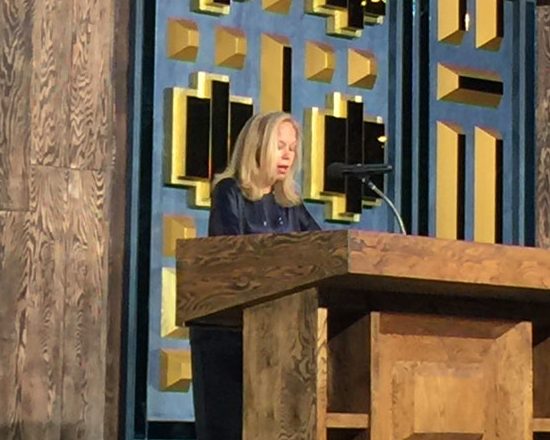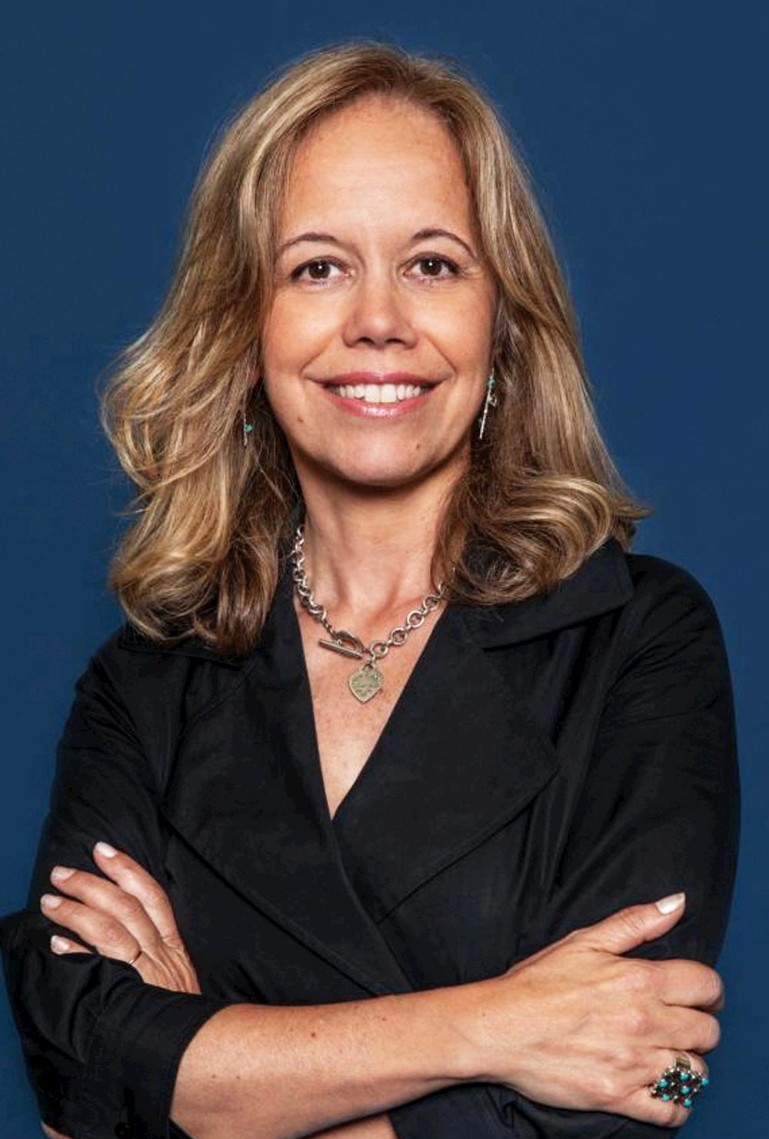A message by prof Isabel Capeloa Gil president of the international federation of catholic universities (IFCU)

During the opening ceremony of the 27th ASEACCU Annual Conference
@ Sogang University, Seoul, Korea, Prof. Gil delivered the following message:
Isabel Capeloa Gil (IFCU President)
Address to ASEACCU Conference (August 21, 2019)
Executive Secretary, Fr. Dagohoy.
Distinguished Board members of Aseaccu,
members of ASEACCU, faculty and students
I am truly delighted to be here, in Seoul, at the annual conference of the Association of Southeast and East Asian Catholic Colleges and Universities, and to have the opportunity to address the distinguished members of this association on behalf of IFCU (International Federation of Catholic Universities). We live interesting and challenging times, full of potential, on the one side, and prone to destruction, on the other. In this environment the role of Catholic universities is more relevant than ever to secure a more humane future for mankind.
And there are three main reasons why this moment is particularly relevant. Firstly, because we are aware that in the spirit of engagement that His Holiness Pope Francis inspires us to pursue, institutions at the service of the universal Church, must be institutions that go forth, that dare to take concrete action in the wide world we are privileged to inhabit. A global federation, such as IFCU, honors the true sense of its globality, and that means working together with member universities and Associations worldwide to advance our great common mission of empowering Catholic higher education.

Allow me, nonetheless, to venture a more in-depth look at what this ‘global’ actually means. Other than culture and nature, global is arguably one of the most loaded words in academic vocabulary. The global is both a condition and a strategy, it is a source of anxiety and a project of expansion, it speaks of a desire for recognition and of exclusion. From a philosophical point of view, the global recalls that which Heidegger called ‘the gigantic’ (Das Riesige), defined by the abolition of distances and the representation of daily life in unfamiliar and distant worlds. It speaks of the conquest of both time and space.
We convene here today as global subjects in one of the fastest growing areas for Catholicism. University leaders, faculty, staff and students, we are true representatives of the global diaspora of hope universities embody. For truly, universities have been since their inception drivers of advancement beyond borders. We are heirs to the early scholasticus vagans (wandering scholar), of the medieval university, who could today be very well represented both by the exchange students and the visiting scholars. Clearly, for universities internationalization is not a simple strategy, it is part of their mission. But at the same time, as part of our concrete horizon of action, we must be aware that the cosmopolitan condition cannot or should not obscure that other effect of the global ‘gigantic’, the one Arjun Appadurai names the diaspora of fear, beset with the despair of refugees and migrants. It is also the task of universities, most specifically of Catholic universities, to educate the youth in the spirit of a global caring and mutually responsible humanity, conscious of our situation as what Homi Bhabha calls ‘Translated beings’, always on the move, engaging with difference and transformed by every new dialogue.
In sum, a global federation such as IFCU is a translatable organization, working in collaboration with partners worldwide, serving their needs and articulating their concerns. It is an organization that goes forth and I am particularly enthused by the meeting yesterday with the Board of ASEACCU and the possibilities of renewed cooperation to create new spaces and platforms for research and development dialogue. I wish to acknowledge, and thank, at this stage the tremendous work that has been done by the representative of ASEACCU, Fr. Herminio Dagohoy, as IFCU Board member.
A few words about the history of IFCU. Over the past 95 years, the International Federation of Catholic Universities has been steadily working to advance the cause of Catholic higher education. Founded in 1924 through the engaged work of leading European universities (KU Leuven, Univ. Sacro Cuore, Milan, and Univ. Nijmegen) IFCU has consistently worked to support the quality, autonomy and relevance of Catholic universities in light of the Gospel’s revelation with true autonomy and academic freedom.
The Federation was also born at a time that speaks to the second reason of relevance I wish to single out and pivots to the importance of the topic under which ASEACCU’s conference is convening “Reconciliation and the Situation in the East Asian Region”. IFCU was born in the aftermath of the I World War, at a moment when internationalism was promoted as a strategy to fight the defeated, but nonetheless terribly latent hyper-nationalism amongst European nations. Not only was internationalization a hallmark of the universal work of the Church, but universities as well were understood as the peace builders for the future of our common humanity. As we convene in South Korea today, in the frontline of the longest lasting global point of tension, it is important to consider how our work as academics may lead towards effective reconciliation. As Catholics, we understand there is no other way, no matter how hard.
This does not mean, doing away with the terrible memories of past violence. Nations are marked with the scars of war. They may be older or quite recent, but national memories are more often than not packed with suffering and resentment, pain and an even if repressed desire for retribution. An insightful inspiration comes from the address given by Pope John Paul II in his visit to the Yad Vashem, in Israel. Remembering the Holocaust, he said “We remember, but not with any desire for vengeance or as an incentive to hatred. For us, to remember is to pray for peace and justice, and to commit ourselves to their cause. Only a world at peace, with justice for all, can avoid repeating the mistakes and terrible crimes of the past.” Catholic Universities have a mission of global dialogue, that positions them as primordial peacebuilders. From study to action, we must commit to a future of reconciliation and both IFCU and ASEACCU are instrumental in supporting this work. In this vent, IFCU launched in 2018 the Peace Studies Network, an international group of multidisciplinary research with the aim of studying international relations, conflicts, and strategies for conflict prevention and the construction of sustainable peace.
Thirdly, let me single out the common challenges that universities and Catholic universities more deeply are facing today. In 2019, the landscape of higher education is changing fast and irrevocably. Pope Francis’ address to the Pontifical Catholic University of Ecuador sums up our challenge in two key questions. He says, “As a university, as educational institutions, as teachers and students, life itself challenges us to answer these two questions: What does this world need us for? Where is your brother?”
Our task is challenging but not daunting. If we are to prepare for a future where the jobs to come have not yet been invented, – and has it ever been different ? – working across boundaries is a necessary condition. These boundaries are not simply instrumental, they are also axiological, epistemological and cultural. It means unpacking complexity from a problem-based perspective with an ethical horizon and respectful of cultural diversity.
Science at the service of the common good means taking up the challenge of improving the human condition while respecting the whole life of the planet, it requires taking up the challenges, the threats and the opportunities where they are placed. And it involves working across disciplines, across nations. As Johann Wolfgang von Goethe argued, “there is no such thing as patriotic science”. In its work for the institutional advancement of Catholic universities, IFCU supports the development of transnational research, promotes international quality assessment, fosters global networking through its global training programs and is about to launch a global student exchange program amongst member institutions worldwide. We work to build bridges and together we can transform individual strengths into global power. Let me end by thanking the invitation to be here today, wish all of you a productive work and invite all those gathered here today, to build coalitions, so that armed with a culture of dialogue and encounter between our universities, the Church, and the communities in which we operate, we may truly embrace the splendor of our present.
